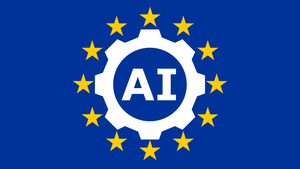The European Commission “largely ignored” creators and copyright owners when producing official guidance on the copyright and transparency obligations contained in the EU AI Act. Officials instead chose to implement the new AI regulations in a way that “solely benefits” the AI companies that “continuously infringe copyright and related rights to build their models”.
That is according to a consortium of organisations representing creators and rightsholders from across the music, media, film, TV, books and visual art sectors, including music industry groups AEPO-ARTIS, BIEM, CISAC, ECSA, FIM, GESAC, IAO, ICMP, IFPI, IMPALA and IMPF.
With the way the EU AI Act is currently being implemented - those organisations say in an open letter - the “thriving” cultural, creative and copyright sectors that “contribute nearly 7% of EU GDP” and “provide employment for nearly 17 million professionals” are “being sold out” in favour of AI companies. As a result, the organisations call for the Commission to rethink its entire approach.
The European Union’s wide-ranging AI Act says that companies exploiting existing content to train generative AI models that are made available in Europe should comply with European copyright laws and be transparent about what existing works have been used.
Those obligations become active next month and, ahead of that, the Commission has published three documents setting out how AI companies should go about complying with the act.
That includes a code of practice, a set of guidelines and a template for disclosing information about training data. Those documents were informed by a consultation involving both rightsholders and AI companies, but throughout that process the rightsholders said they felt the views of the AI companies were being prioritised.
The new open letter states, “despite the extensive, highly detailed and good-faith engagements by rightsholder communities throughout this process, the final outcomes fail to address the core concerns which our sectors have consistently raised”.
Those outcomes are “not a balanced compromise” and fail to “deliver on the promise of the EU AI Act”, making the whole enterprise “a missed opportunity to provide meaningful protection of intellectual property rights in the context of GenAI”.
For creators and rightsholders, the key element of the EU AI Act was article 53, which set out the copyright and transparency obligations. When it came to preparing the code, guidelines and template, the letter says, the “primary beneficiaries” of that article - ie creators and rightsholders - were “largely ignored”.
“We strongly reject any claim that the code of practice strikes a fair and workable balance or that the template will deliver ‘sufficient’ transparency about the majority of copyright works or other subject matter used to train GenAI models”, the letter says. “This is simply untrue and is a betrayal of the EU AI Act’s objectives”.
With all that in mind, the letter calls on the Commission “to revisit the implementation package and enforce article 53 in a meaningful way”, while asking the European Parliament and individual EU member states to “challenge the unsatisfactory process of this exercise”.

